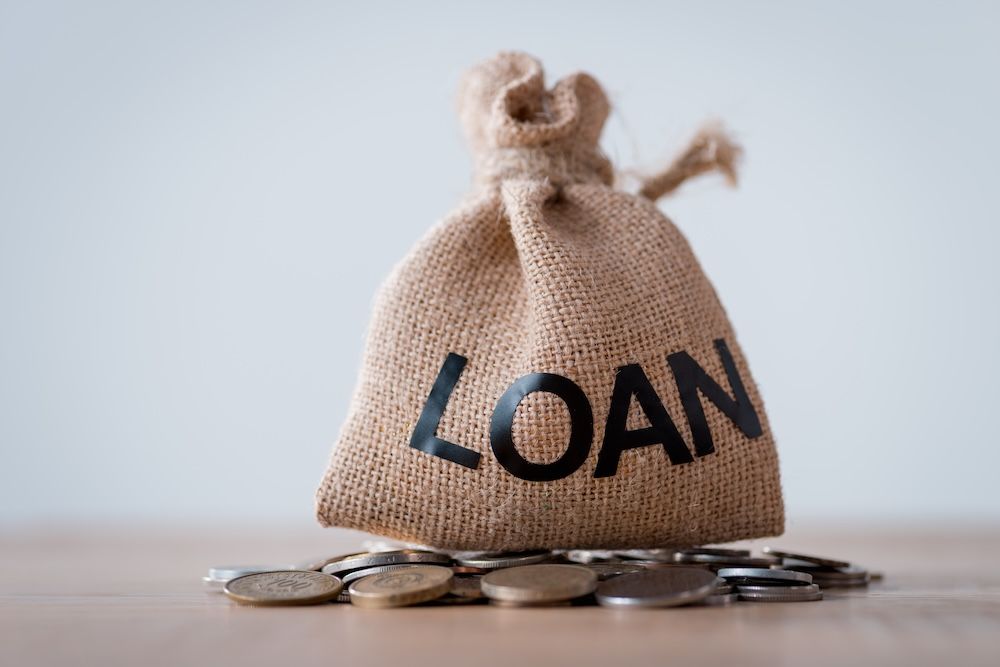Learn how to balance your finances with Fast Cash and Cash Loan options for greater flexibility
A Comprehensive Overview to Home Loans: Solutions and Options Explained
Charting the globe of home car loans can be complex. Different options exist, each with special functions and implications for potential property owners. Comprehending the differences between government-backed and traditional loans is important. Moreover, the application process includes thorough paperwork and pre-approval actions that numerous overlook. As debtors begin on their home-buying trip, recognizing exactly how to handle these duties effectively might imply the difference between economic stability and challenge. What techniques can empower them on this course?
Comprehending Home Loans: Types and Terms
Understanding the various sorts of home mortgage and their associated terminology is important for possible homeowners, as it outfits them with the understanding required to make educated financial decisions. Mortgage can be extensively classified into adjustable-rate and fixed-rate home loans. Fixed-rate mortgages keep a regular rate of interest over the life of the loan, providing stability in regular monthly settlements. Payday Loans. Alternatively, variable-rate mortgages feature passion prices that may change after an initial set period, possibly resulting in reduced preliminary payments however enhanced future prices
Extra terms is important for clearness. Principal describes the funding amount obtained, while passion is the cost of borrowing that amount. The term of the lending shows its duration, commonly varying from 15 to three decades. Recognizing these basic principles makes it possible for possible customers to navigate the facility landscape of home funding, ensuring they pick the best lending alternative that lines up with their economic circumstance and lasting objectives.
Standard Financings vs. Government-Backed Loans
A considerable distinction in home financing exists between government-backed lendings and conventional fundings, each providing to various consumer needs and situations. Standard loans are not insured or ensured by the government and commonly need greater credit report and down payments. They are frequently attracting borrowers with steady economic backgrounds, as they might supply affordable interest rates and terms.
On the other hand, government-backed lendings, such as FHA, VA, and USDA finances, are designed to assist specific groups of customers, consisting of newbie buyers and experts. Cash Advance. These lendings typically include reduced down repayment requirements and more adaptable credit requirements, making them easily accessible to a more comprehensive variety of people
Ultimately, the choice in between government-backed and traditional financings depends upon the consumer's financial situation, long-term goals, and eligibility, making it necessary to thoroughly examine both alternatives prior to deciding.

The Function of Passion Rates in Home Funding
Rate of interest play a crucial role in home funding, influencing consumers' decisions in between set and variable price finances. The choice in between these alternatives can significantly affect regular monthly repayments, influencing overall price. Understanding how rates of interest function is crucial for anybody maneuvering via the mortgage procedure.
Taken Care Of vs. Variable Prices
Buyers deal with an essential choice when picking between fixed and variable prices, as this selection significantly influences the expense of funding in time. Fixed-rate mortgages supply stability, securing in a rates of interest for the life of the finance, which can be advantageous in a climbing rate of interest environment. This predictability permits home owners to budget plan better. On the other hand, variable-rate home loans, or variable-rate mortgages (ARMs), generally begin with lower preliminary prices that can fluctuate based on market problems. While this might result in lower initial repayments, customers encounter the danger of boosted prices in the future. Eventually, the choice in between variable and set rates depends on specific economic situations, threat tolerance, and assumptions relating to future rate of interest trends.
Influence on Month-to-month Settlements
When reviewing home funding options, the influence of rates of interest on regular monthly repayments is an essential element to ponder. Rates of interest straight affect the total cost of loaning, influencing how much a debtor will certainly pay each month. A lower rates of interest lead to smaller regular monthly settlements, making homeownership a lot more affordable. Alternatively, higher prices can substantially increase month-to-month responsibilities, possibly straining a property owner's budget. In addition, the car loan term plays a crucial duty; longer terms may spread out repayments out yet can cause paying even more passion in time. Understanding how rate of interest interact with funding quantities and terms is important for debtors to make educated economic decisions and choose a mortgage that aligns with their lasting economic objectives.
Home Mortgage Brokers vs. Straight Lenders: Which Is Right for You?
When taking into consideration a home loan, prospective consumers should recognize the distinctive duties and obligations of home mortgage brokers and straight loan providers. Each option provides its very own benefits and negative aspects, which can significantly influence the general price of financing. An educated selection requires careful analysis of these factors to figure out the ideal fit for specific demands.
Duties and functions Defined
Maneuvering the intricacies of home funding requires a clear understanding of the functions and obligations of home mortgage brokers and straight lending institutions. Mortgage brokers act as intermediaries, linking consumers with lending institutions. They analyze a debtor's financial scenario, curate financing choices, and overview customers with the application process, commonly leveraging multiple lending institution relationships to protect favorable terms. Conversely, direct lending institutions, such as financial institutions and lending institution, give car loans directly to consumers. They deal with the entire funding procedure, from application to financing, with a concentrate on their very own products. Each option offers unique methods for getting funding, making it vital for debtors to examine their choices and needs when deciding in between involving a home mortgage broker or collaborating with a direct loan provider.
Pros and Cons Contrast
Selecting in between a home loan broker and a direct lender can substantially affect the home funding experience, as each choice offers special advantages and drawbacks. Home loan brokers function as intermediaries, providing accessibility to multiple lending institutions and potentially much better prices, while simplifying the lending process. They may charge fees and rely on compensation frameworks that could affect their suggestions. On useful content the various other hand, direct loan providers simplify the procedure by providing internal loans, which can result in faster approvals and fewer difficulties. Alternatively, they may have a minimal option of items and less flexibility pertaining to rates. Ultimately, the decision hinges on private choices, monetary scenarios, and the preferred level of support throughout the home loan journey.
Price Ramifications Analyzed
While reviewing the expense ramifications of mortgage brokers versus direct loan providers, possible property owners should consider various aspects that can considerably influence their total expenditures. Home mortgage brokers generally charge fees for their solutions, which can differ significantly, influencing the overall car loan expense. Nonetheless, they typically have accessibility to a bigger array of car loan items and affordable rates, possibly saving borrowers cash in the future. Conversely, straight lenders might supply a much more straightforward process with potentially lower upfront prices, however their lending choices might be restricted. It is vital for house owners to contrast rates of interest, charges, and terms from both lending institutions and brokers, guaranteeing they make an enlightened decision that aligns with their economic goals and requirements.
The Mortgage Application Process: What to Expect

The home mortgage application process can usually feel daunting for numerous candidates. It commonly starts with gathering required paperwork, consisting of evidence of income, credit report, and individual identification. Lenders utilize this information to assess the applicant's economic security and figure out funding eligibility.
Next, applicants send a formal application, which might involve completing on-line kinds or providing details in person. During this stage, lenders examine various elements, such as debt-to-income ratio and credit rating, to select funding terms.
When pre-approved, the lender will certainly conduct an extensive evaluation of the building to identify its worth aligns with the funding amount. This phase might likewise consist of added background checks.

After final authorizations and conditions are satisfied, the financing is processed, leading to the closing stage. Comprehending each action equips applicants, making the trip smoother and much more convenient as they approach homeownership.
Tips for Handling Your Home Loan Properly
Effectively navigating the mortgage application procedure is simply the start of a liable financial trip. Taking care of a mortgage calls for attention to a number of essential techniques. First, borrowers need to develop a clear budget that fits month-to-month home loan payments, home tax obligations, and insurance policy. Frequently examining this budget plan helps stop overspending and guarantees timely settlements.
Furthermore, making added repayments when possible can considerably lower the financing principal and overall passion paid in time. Debtors ought to additionally preserve open lines of interaction with their lending institution, specifically in times of monetary difficulty. This can result in prospective remedies such as lending alterations or re-financing choices.
It is advisable to keep track of credit score scores consistently. A good credit rating can give opportunities for far better loan terms in the future. Installment Loans. By following these pointers, house owners can browse their loan duties successfully, ensuring lasting financial wellness and security
Regularly Asked Questions
What Are Closing Prices and How Are They Calculated?
Closing costs incorporate fees related to finalizing a home mortgage, consisting of assessment, title insurance coverage, and car loan source fees. These prices typically vary from 2% to 5% of the loan quantity, differing based on area and lender.
Can I Get Approved For a Mortgage With Bad Credit?
Yes, individuals with poor credit score can receive a home lending, though alternatives may be restricted. Lenders commonly need higher deposits or rate of interest, and exploring government-backed lendings might boost opportunities of authorization.
What Is Home mortgage Insurance and When Is It Required?
When try this website a borrower makes a down payment of less than 20%, home loan insurance policy shields lending institutions versus default and is usually called for. It guarantees that lenders recoup losses if the borrower falls short to pay off the loan.
Just How Does Refinancing Work and When Should I Consider It?
Refinancing involves changing a present mortgage with a new one, generally to secure a reduced rates best site of interest or modification funding terms. House owners should consider re-financing when rates of interest go down significantly or their economic situation boosts.
What Happens if I Miss a Mortgage Settlement?
If a mortgage settlement is missed, the lending institution normally analyzes late charges, reports the misbehavior to credit rating bureaus, and might launch foreclosure procedures if payments remain to be overlooked, at some point endangering the property owner's residential property.
Fixed-rate home mortgages maintain a consistent rate of interest rate over the life of the financing, providing security in regular monthly payments. A substantial difference in home financing exists in between standard fundings and government-backed car loans, each catering to different borrower requirements and circumstances. In comparison, government-backed finances, such as FHA, VA, and USDA financings, are created to aid specific teams of customers, including new property buyers and professionals. Passion prices play an essential role in home financing, affecting debtors' choices in between variable and set rate car loans. Fixed-rate mortgages supply stability, locking in a passion rate for the life of the car loan, which can be useful in a rising interest price setting.